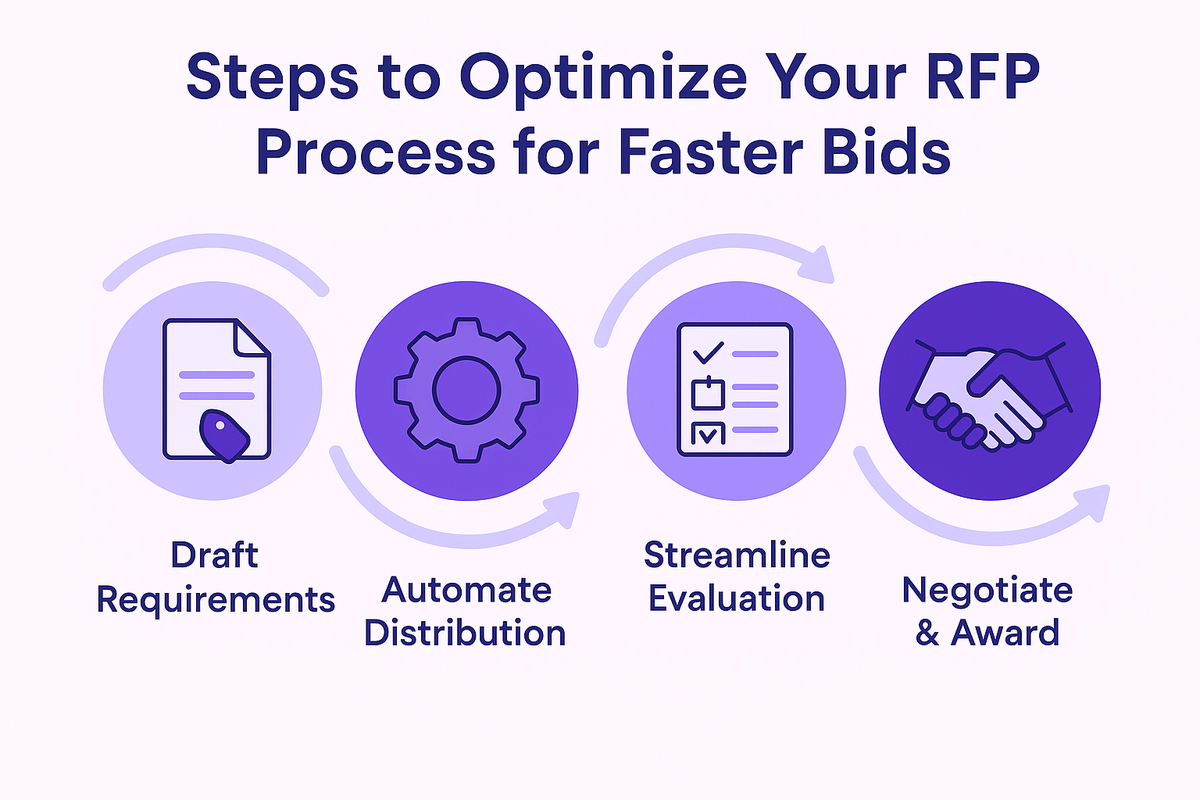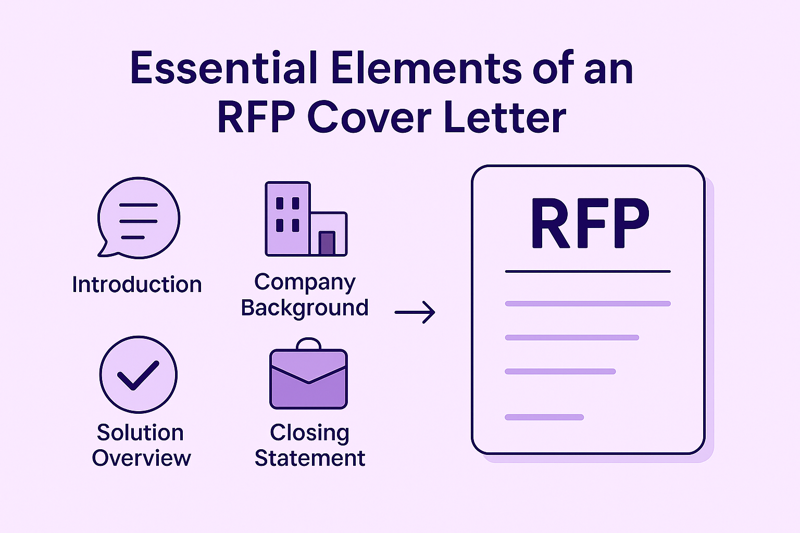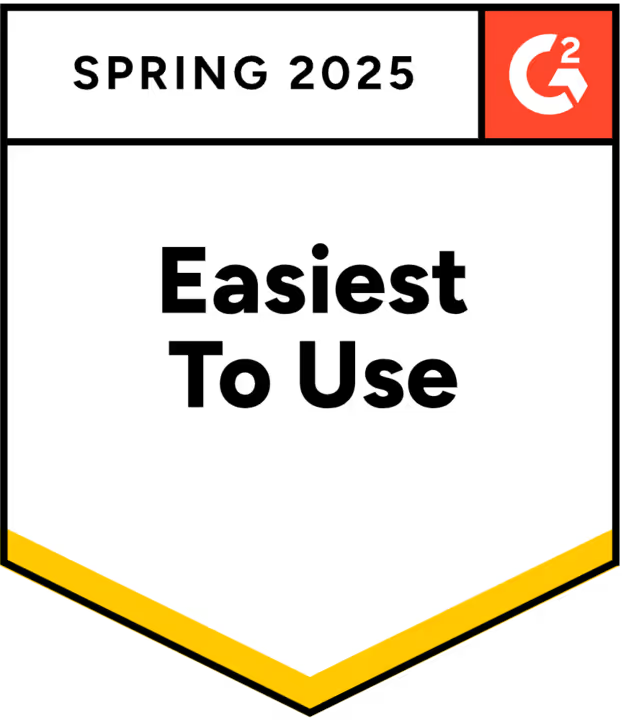AI RFP Software Showdown: Feature‑by‑Feature Comparison of Leading Vendors
September 18, 2025
By
Evie Secilmis

The AI-powered RFP software market is growing rapidly as organizations seek to speed up proposal responses and enhance win rates, with modern AI platforms automating up to 80% of the RFP process for improved speed and quality.
Who Should Use AI RFP Software?
AI-driven RFP tools are suitable for organizations managing 100+ RFPs annually and spending an average of 24 hours per bid. They are particularly beneficial for enterprise sales teams, procurement departments, and bid managers needing to expedite response cycles while upholding quality and compliance.
This technology aids organizations facing challenges in coordinating multiple subject-matter experts, outdated content management, and tight deadlines in a competitive bidding landscape.
Ideal Company Size and Industry
AI RFP software is most effective for mid-market companies (200–1,000 employees) and large enterprises (1,000+ employees) in sectors with high RFP volumes, including manufacturing, technology, professional services, and government procurement, where complex requirements demand advanced response capabilities.
Market adoption reflects this focus, with 80% of manufacturing firms implementing digital procurement tools, recognizing automation's competitive benefits.
Core Challenges It Solves
AI RFP platforms address three major issues in traditional proposal processes:
- Collaboration Bottlenecks – 51% of teams struggle with coordination, leading to delays and inconsistent messaging.
- Finding Up-to-date Answers – 39% cite outdated content as a barrier, resulting in time-consuming searches and compliance risks.
- Meeting Tight Deadlines – 33% report deadline pressure forces teams to compromise on speed or quality.
AI RFP platforms tackle these challenges through real-time knowledge hubs, automated content retrieval, and AI-generated draft responses.
Why AI‑First Matters in RFP Management
AI-first platforms significantly differ from legacy solutions with bolt-on AI features. Native AI architecture facilitates faster, more accurate drafts and continuous learning from each RFP interaction, yielding ongoing improvements.
AI‑Native vs Bolt‑On Platforms
AI-native platforms integrate AI models into core workflows, ensuring seamless data flow and sophisticated context understanding for content generation and workflow optimization.
Bolt-on solutions apply AI capabilities to existing systems, often resulting in limited scalability, slower response times, and reduced accuracy due to architectural constraints.
Generative AI and Specialized Agents
Generative AI models craft new text based on prompts and context, enabling automatic drafting of RFP responses that incorporate company-specific information and compliance requirements.
Specialized AI agents serve as task-focused assistants for specific RFP management aspects, such as competitive research and regulatory requirement extraction. Platforms like Inventive AI utilize multiple agents for comprehensive support.
Market sentiment reflects this trend, with 46% of RFP teams feeling optimistic about AI-assisted workflows, indicating readiness for broader adoption.
Quantifiable Speed and Quality Gains
Leading AI RFP platforms can automate 80% of the RFP process, improving response quality through consistent messaging and reduced human error. Early adopters report a 5–10% win-rate uplift and up to 63% reduction in response times, with improvements compounding as AI systems learn from past proposals.
Iris AI RFP – Core Strengths at a Glance
Iris AI RFP is an AI-native, zero-training-data security solution with extensive integration capabilities for enterprise-scale deployment.
Context‑Aware Drafting Engine
Iris's drafting engine extracts key requirements and standards from RFP documents, pulling relevant content from a unified knowledge hub to generate tailored draft responses that meet client needs.
Zero‑Training‑Data Security Model
Iris employs a zero-training-data approach, ensuring customer documents do not contribute to AI model training, thus preserving confidentiality. The platform complies with GDPR, SOC 2, and ISO 27001 standards through Azure-based isolation and encryption, addressing security concerns from 35% of evaluators.
Deep Integration Ecosystem
Iris integrates natively with platforms like Google Drive, SharePoint, Notion, Slack, Microsoft Teams, Salesforce, and major CRMs, facilitating instant access to content and reducing the average 37-day evaluation period.
Rapid Onboarding and Flexible Pricing
The platform offers 48-hour white-glove onboarding for immediate productivity. Pricing follows a tiered structure (SMB, Mid-Market, Enterprise) with usage-based discounts.
Feature‑by‑Feature Comparison of Top Vendors
Content Library and Knowledge Hub
Iris AI RFP offers a unified, AI-indexed knowledge hub with real-time synchronization, ensuring current and searchable content.
Responsive provides strong Q&A automation but lacks AI-enhanced retrieval, limiting relevant information discovery.
AutoRFP.ai supports a multi-language library with compliance tagging, ideal for global organizations.
Inventive AI combines its knowledge hub with specialized AI agents for dynamic content curation.
AI Response Generation and Customization
Iris's context-aware engine generates targeted responses while maintaining data security.
Responsive relies on bolt-on solutions, limiting customization and quality.
Inventive AI's specialized agents enhance strategic positioning through competitive landscape analysis.
Collaboration, Workflow and Approvals
Iris allows real-time multi-user editing with notifications via Slack and Teams.
Responsive offers basic workflow management without AI-driven process optimization.
Thalamus AI automates approvals and compliance verification using AI agents.
Security, Compliance, Integration and Pricing
Real‑World ROI and Use‑Case Recommendations
Organizations using AI RFP solutions report consistent improvements, with win-rate increases of 5‑10% and time-to-response reductions of up to 63%.
One case study involved a 1,200-employee manufacturer reducing proposal creation time from 24 to 8 hours, allowing for 12 additional bids per quarter and a 7% revenue increase.
Enterprise vs SMB Scenarios
Enterprise organizations benefit from advanced scalability, multi-tenant security, and strategic AI insights for complex opportunities.
SMB companies should focus on rapid onboarding, cost-effective pricing, and enhanced response capacity without staff increases.
Compliance‑Heavy vs Fast‑Moving Environments
Compliance-heavy industries require zero-training-data models, ISO 27001 certification, and on-premise options for data sovereignty.
Fast-moving environments benefit from generative AI speed, multi-language support, and integration with agile tools like Jira and Notion.
Share this post
Link copied!





















